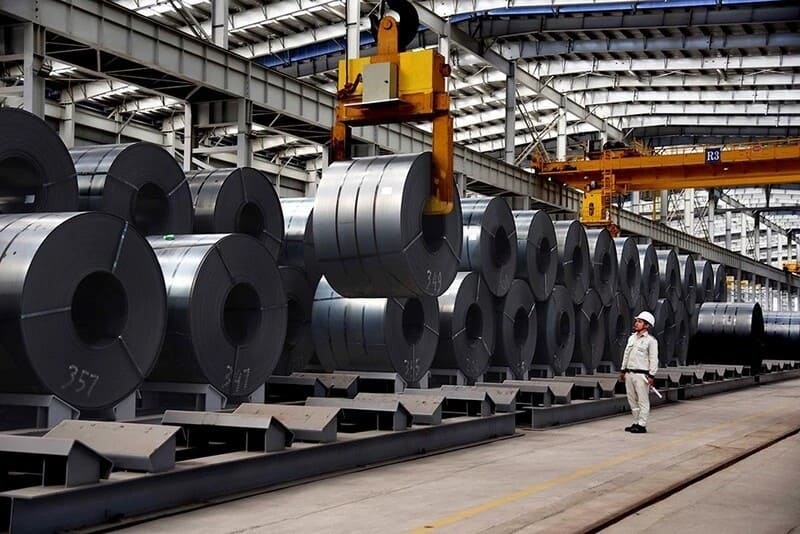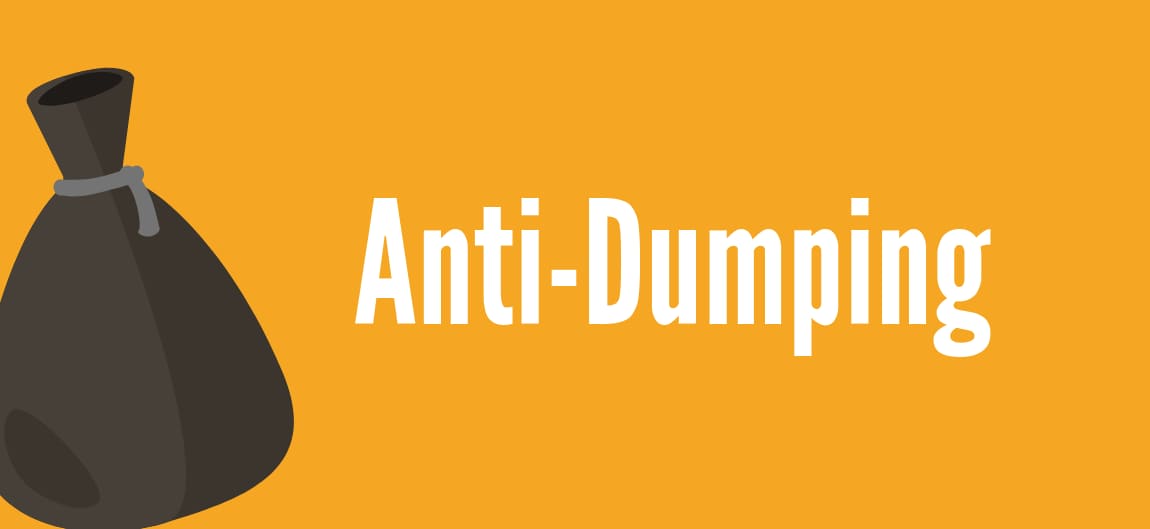Understanding the Legal Framework, Investigation Process, and What Foreign Exporters Must Prepare
In recent years, Vietnam has transformed from an emerging export-driven economy into a more assertive trade actor — one that actively uses trade remedy tools to protect domestic industries. As global supply chains shift and Vietnam becomes a key manufacturing and consumer market, foreign exporters are increasingly exposed to anti-dumping investigations by Vietnamese authorities.
For multinational manufacturers and trading houses, understanding when and why Vietnam imposes anti-dumping duties is no longer optional — it is a strategic necessity.
This article explains the legal basis, triggers, and practical process of anti-dumping investigations in Vietnam, with insights on how businesses can protect themselves and maintain stable market access.
📌 What Is Anti-Dumping in Vietnam?
“Dumping” occurs when foreign suppliers export goods to Vietnam at prices lower than the normal value in their home market — causing harm to domestic producers.
Vietnam follows WTO principles, and its legal definitions mirror international rules.
Anti-dumping duty = additional tax imposed on imported products if authorities conclude that dumping exists and causes injury to a domestic industry.
This measure is not intended to distort trade — it aims to maintain fair competition in the Vietnamese market.

⚖️ Legal Basis for Anti-Dumping in Vietnam
Vietnam’s trade remedies framework is aligned with WTO rules:
| Level |
Regulation |
| International | WTO Anti-Dumping Agreement |
| National Law | Law on Foreign Trade Management (2017) |
| Guiding Decrees | Decree 10/2018/NĐ-CP, amended by Decree 17/2020/NĐ-CP |
| Agency | Vietnam Trade Remedies Authority (TRAV), Ministry of Industry and Trade (MOIT) |
Vietnam’s framework is relatively new compared to the US or EU, but increasingly active and sophisticated.
📈 Why Vietnam Uses Anti-Dumping Measures More Often
Vietnam now operates a dual role in global trade:
- Leading exporter (electronics, garments, furniture, steel, seafood…)
- Attractive import market in Asia
To balance openness and domestic industry protection, Vietnam uses trade remedies strategically — especially in sectors where import surges affect local production, including:
- Steel and metal products
- Fertilizers and chemicals
- Energy products (solar panels, wind turbine components)
- Consumer goods (plastics, textiles, tires)
As Vietnam deepens participation in FTAs (CPTPP, EVFTA, RCEP), defensive trade tools become critical to safeguard domestic industries against unfair pricing or market disruption.
When Can Vietnam Apply Anti-Dumping Measures?
Vietnam may impose anti-dumping duties when three key conditions are met:
1️⃣ Dumping Exists
Export price < Normal value
Normal value = domestic market price in exporting country or a constructed value when data is unavailable.
2️⃣ Material Injury to Domestic Industry
Evidence of:
- Declining sales or market share
- Falling prices / profitability
- Reduced production capacity
- Job losses or financial stress
3️⃣ Causal Link
Dumping must be the main cause of injury — not unrelated macroeconomic factors.
Foreign suppliers often lose cases not because dumping is proven, but because they fail to provide data, forfeiting the right to defend themselves.

🚨 Who Can Initiate an Anti-Dumping Case in Vietnam?
A case may be initiated by:
- Domestic manufacturers representing at least 25% of national output
- Industry associations
- In rare cases, the Government
The petition must include evidence of dumping and injury — Vietnamese industry is becoming more educated and proactive, meaning more petitions will come.
🔍 Investigation Process in Vietnam
Vietnam’s investigation timeline resembles WTO standards, with specific local procedures.
📎 Step-by-Step Process
| Phase | Key Actions | Typical Duration |
| Filing of Petition | Domestic industry files complaint | — |
| Initiation | TRAV reviews evidence & launches case | 30–45 days |
| Questionnaires & Data Collection | Exporters & importers submit data | 60–90 days |
| Verification | On-site verifications (often virtual) | — |
| Preliminary Conclusion | Provisional duty may apply | ~6–9 months |
| Public Hearings | Stakeholder presentations | — |
| Final Determination | Final dumping margin & injury | 12–18 months |
| Post-review | Exporters can request reviews | Annually |
Cooperation strongly affects outcome. Non-cooperative exporters often receive the highest duty rate.
📊 Common Outcomes for Exporters
| Scenario | Result |
| Full cooperation, strong data | Low or zero duty possible |
| Partial cooperation | Medium/high duty |
| Non-cooperation | Highest punitive duty |
Vietnam increasingly uses provisional duties early, which can disrupt cash flow and supply chains if exporters are not prepared.
🏭 Industries Most Exposed to Vietnam’s Anti-Dumping Actions
Based on recent enforcement trends:
- Steel and iron products
- Aluminum and metal alloys
- Chemicals and plastics
- Wood-based panels
- Solar energy components
- Tires & rubber goods
- Household and consumer products
Exporters in China, Korea, Indonesia, Malaysia, Thailand, Taiwan and ASEAN peers face the highest exposure.
🧠 Practical Challenges for Foreign Exporters
Many foreign suppliers underestimate:
- Accounting transparency requirements
- Documentary evidence burden
- Language and procedural barriers
- Complex local verification processes
- Timelines and strict compliance deadlines
Companies often struggle because they:
- React after receiving investigation notice, not before
- Lack internal compliance systems for trade remedies
- Assume Vietnam’s enforcement is “soft” — it is not anymore
🛡️ How Foreign Companies Can Prepare
✅ Build internal compliance for trade remedy risks
- Maintain detailed production & cost records
- Track export pricing vs domestic market pricing
- Prepare audited data proactively
✅ Monitor Vietnamese market conditions
- Watch domestic price trends
- Follow industry associations & trade bulletins
- Engage early with local advisors
✅ Establish a legal response protocol
- Assign a responsible team
- Appoint a Vietnam-based law firm
- Coordinate with international counsel and accounting experts
✅ Engage in the investigation actively
- Respond to questionnaires thoroughly
- Participate in hearings
- Provide on-site support for verifications
Early preparation = lower duty risk.
🏛️ Why Local Counsel Matters
Anti-dumping in Vietnam is not just WTO law — it is domestic administrative law + procedural law + customs practice + local regulatory culture.
Key advantages of working with local counsel include:
|
Capability |
Value |
| Vietnamese trade law expertise | Correct filings & defense strategy |
| Industry-specific experience | Tailored defense arguments |
| Government communications | Effective engagement with TRAV |
| Bilingual legal + accounting support | Accurate questionnaire responses |
| Understanding of cultural factors | Practical negotiation & positioning |
⚖️ How La Défense Supports Foreign Exporters
At La Défense, we assist international manufacturers, trading companies, and investors with:
- Preventive trade-compliance & risk assessment
- Responding to Vietnamese anti-dumping investigations
- Preparing questionnaire submissions & verified data sets
- Coordinating foreign accounting and audit teams
- Advising on post-investigation strategies & reviews
- Representing clients before TRAV and MOIT
- Liaising with customs authorities
Our cross-border dispute and trade regulatory team combines:
- Expertise in Vietnamese trade law
- Deep knowledge of WTO principles
- Practical experience in manufacturing, supply chain, and customs
- Strong working relationships with authorities and trade groups
We position our clients not only to defend — but to compete confidently and compliantly in the Vietnamese market.
As Vietnam strengthens enforcement of anti-dumping rules, foreign exporters must adapt — with stronger compliance systems, better data readiness, and experienced local legal support.
Failing to prepare is no longer an option.
The most successful exporters treat trade remedy risk as an ongoing strategic matter, not a crisis-response exercise.
If your company exports goods to Vietnam — or plans to — consider a proactive discussion with our trade-remedies team.
📧 office@ladefense.vn
🌐 www.ladefense.vn | www.investtovietnam.com
☎️ (+84) 24 8888 1118

